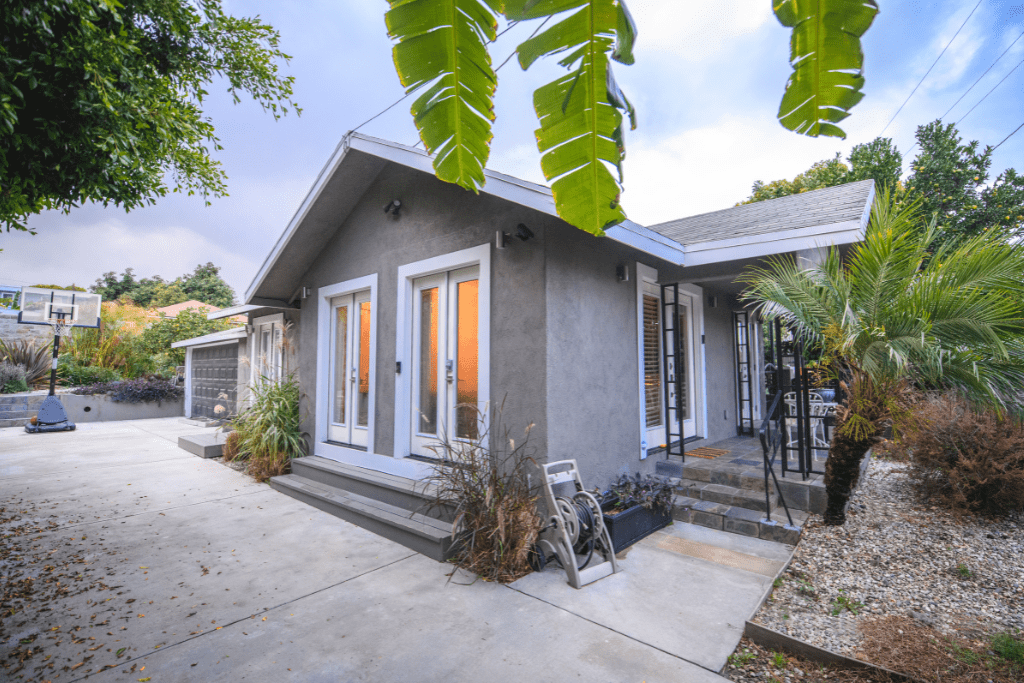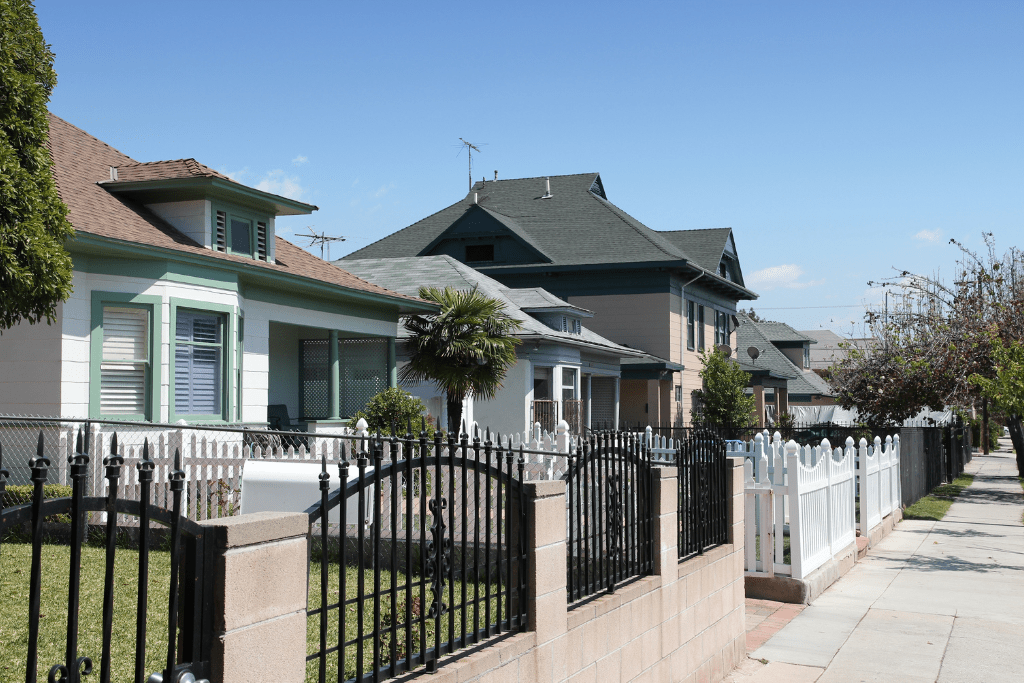The Los Angeles home buying market is extremely competitive. If you’re not working with a good real estate agent, you will have difficulty finding the right home, especially if you are a first-time home buyer. There are a few things that you can do to make sure you’re working with the best possible real estate agent. The first thing you should do is ask around for referrals. Talk to your friends, family, and co-workers to see if they have recommendations for good real estate agents in Los Angeles.
Another great way to find a good agent is to search online. Many different websites allow you to search for real estate agents in Los Angeles. Once you’ve found a few agents you’re interested in working with, you should set up appointments to meet with them. This will allow you to ask them questions and get to know them better. For example, when you meet with an agent, ZeroDown, you should ask about their experience in the Los Angeles home buying market. You should also ask about their success rate. A good agent will be able to show you homes that they’ve sold in the past. This will give you an idea of what to expect when you work with them.
Finally, you should always make sure that you’re working with a licensed real estate agent. This is important because it will protect you from any legal complications during the home buying process. Working with a good real estate agent can make a big difference in your Los Angeles home-buying experience. If you take the time to find a good agent to buy or sell your home, you’ll be glad that you did.
When you’re ready to buy a home in Los Angeles, you’ll need to know a few things about the market.
The first thing to understand is that the real estate market in Los Angeles is very different from other parts of the country. In general, prices are much higher, and more competition for homes is needed. This means that you’ll need to be prepared to spend more money and be more aggressive when looking for a home.
The second thing to keep in mind is that the real estate market in Los Angeles can be very volatile. This means that prices can change quickly, and you may need to be prepared to move fast when a good deal comes along. You should also be aware that there are many different neighborhoods in Los Angeles, and each one has its unique character. So you’ll need to decide which area is right for you before you start looking for a home.
Finally, it’s important to understand the different types of homes available in Los Angeles. There are single-family homes, condos, townhouses, and even apartments. You’ll need to decide what type of home is right for you based on your budget and needs. Once you’ve decided on the type of home you want, you can search for listings.

What kinds of homes can I buy in LA?
There are many types of homes you can buy in Los Angeles. You can buy a single-family home, a condo, a townhouse, or even a mobile home. The type of home you buy will depend on your needs and budget. If you need a lot of space, you may want to buy a single-family home. If you’re on a tight budget, you may want to buy a condo or townhouse. There are also many mobile homes available for purchase in Los Angeles. Whatever your needs, there is sure to be a type of home right for you in LA.
Small lot homes are a great option if you’re looking to downsize or don’t need a lot of space. They can be more affordable than traditional homes and offer many of the same amenities.
If you’re considering a small lot home, you should keep a few things in mind. First, you’ll need to ensure that the lot size is appropriate for your needs. You’ll also want to consider the home’s layout and how it will fit into your lifestyle.
Townhomes are a great alternative to apartments and single-family homes. If you’re looking for more space and privacy than an apartment but don’t want the hassle of maintaining a single-family home, a townhome is probably right for you. Townhomes are also a great option if you’re looking to downsize from a single-family home but still want your yard and garage.
When considering a townhome as your next home, there are a few things to keep in mind. First, townhomes are typically part of an association, which means you’ll have monthly association fees and your mortgage payment. So be sure to factor this into your budget when considering a townhome. Additionally, townhomes often have strict rules about noise, pets, and other things, so read the association’s rules before you buy.
Condos are becoming an increasingly popular type of housing, especially among young people and retirees. There are many reasons for this trend, but some of the most common ones include the following:
Condos offer a more affordable alternative to traditional single-family homes, especially in big cities where real estate prices are skyrocketing.
They require less maintenance and upkeep than a typical home, which is ideal for busy people who don’t have the time or energy to keep up with a large property.
Many condos come equipped with amenities like swimming pools, gyms, and concierge services, which provide extra convenience and comfort.
Single-family homes were the most common type of housing unit in the United States in 2019, accounting for nearly 63 percent of all occupied housing units. This is a slight increase from the 62.3 percent of single-family home units in 2018.
There were an estimated 137.6 million single-family homes in the United States in 2019, up from 136.7 million in 2018. The average size of a single-family home was 2,467 square feet in 2019, up from 2,462 square feet in 2018.
The vast majority of single-family homes (84.5 percent) were detached homes, meaning they stood alone and were not attached to any other dwelling unit. The remaining 15.5 percent of single-family homes were attached, such as townhouses, row houses, and duplexes.
Duplexes/triplexes have long been a popular type of investment property due to the higher potential rental income earned from them. However, before you jump into investing in one of these properties, it’s important to understand the pros and cons.
One of the biggest advantages of owning a duplex or triplex is the potential for increased rental income. When you have two or three units to rent out, you have the potential to earn a lot more money than if you only had a single-family home. Additionally, since you’re essentially running a small business, you may be able to deduct certain expenses from your taxes.
Another advantage is that you can often live in one unit while renting out the others. This can help offset your mortgage payments and make the property more affordable.
However, there are also some disadvantages to owning a duplex or triplex. One is that they can be more expensive to maintain than a single-family home. Additionally, you’ll have to deal with the hassle of being a landlord, which includes finding tenants, collecting rent, and dealing with repairs and maintenance. And if one unit is vacant, it can negatively impact your cash flow.
If you’re considering making the switch to condo living, there are a few things you should keep in mind before making your decision. Here are a few tips to help you choose the right condo for you:
1. Location is key – When it comes to real estate, location is always one of the most important factors. You want to make sure you choose a condo situated in a neighborhood that you love and feel comfortable with. If you have kids, you’ll also want to find a place close to good schools and other family-friendly amenities.
2. Research the building – Once you’ve found a few potential condo buildings in your desired neighborhood, it’s time to do some research. Check out online reviews and talk to people who have already lived in the building to get an idea. You should also make sure to tour the building and see the units for yourself before making any decisions.
3. Know your budget – One of the people’s biggest mistakes when buying a condo is not knowing their budget. It’s important to figure out how much you can realistically afford to spend on your monthly mortgage, property taxes, and other expenses before making any offers. Once you have a clear number in mind, you can start looking for units that fit your budget.
4. Hire a real estate agent – If you’re not familiar with the condo-buying process, it’s a good idea to hire a real estate agent who can help guide you through it. An experienced agent will be able to answer any questions you have and give you advice on which buildings and units are worth considering.
5. Get a mortgage pre-approval – Before starting your search in earnest, it’s good to get pre-approved for a mortgage. This will give you a better idea of how much you can afford to spend on your new condo and make the buying process go much smoother.
How much do homes cost in LA?
In Los Angeles, the cost of a home can vary greatly depending on the neighborhood and type of home you are looking for. For example, a small bungalow in a less desirable area may cost around $200,000, while a large estate in a desirable neighborhood could cost upwards of $5 million. Ultimately, the price of a home in LA will depend on many factors, including location, size, and amenities.
Why is real estate so expensive in Los Angeles?
Some people may think that the price of a product or service is too high. There could be a variety of reasons why this might be the case, such as the cost of materials, overhead expenses, or simply because the company is trying to profit. Whatever the reason, it’s important to remember that businesses need to generate revenue to stay afloat and continue providing their products or services. So, if you feel that something is too expensive, try to understand the company’s perspective and see if there may be some room for negotiation.

When is the best time to buy a home in LA?
It depends on the market and your specific situation. However, the best time to buy a home is when you find a property that meets your needs and is within your budget. Additionally, it is also wise to consider the timing when considering purchasing a home, as certain times of year may offer more favorable conditions than others. For example, spring and summer are generally considered the busiest seasons in the real estate market, so buyers may have more competition. Conversely, fall and winter may be slower periods in the market, giving buyers more negotiating power. Ultimately, the best time to buy a home is when you are ready and able to do so.
How much of a downpayment will I need?
You’ll need at least a 3% down payment for most loans. FHA loans are an exception, requiring just a 3.5% downpayment. You’ll need a larger down payment for expensive homes. Be sure to talk to your lender about what’s required for your loan.
If you’re thinking about buying a home, you’ve probably heard that you need to start saving for a down payment. But how much do you need?
The answer depends on the type of loan you’re getting, the price of the home, and your credit score.
You’ll need at least a 3% down payment for most loans. FHA loans are an exception, requiring just a 3.5% downpayment. You’ll need a larger down payment for more expensive homes – sometimes as much as 20%. Be sure to talk to your lender about what’s required for your loan.
Saving for a down payment can be difficult, but there are ways to make it easier. You can start by setting up a savings account specifically for your down payment and making regular deposits. You can also look into down payment assistance programs offered by state or local governments or some employers.
Talk to a lender if you’re not sure how much of a down payment you can afford. They can help you figure out a realistic for your budget and your loan.
Should I bother getting pre-qualified?
You may have heard that you should get pre-qualified for a mortgage before beginning the home-buying process. But what does pre-qualified mean? Getting pre-qualified is the first step in the mortgage process. It gives you an idea of how much you can borrow and helps establish a clear price range for homes. The pre-qualification process also allows your lender to get to know you and understand your financial situation.
There’s no fee to get pre-qualified, and it won’t affect your credit score. So if you’re not sure whether you’re ready to buy a home or just want to see how much you can afford, getting pre-qualified is a good first step.

Conclusion
In conclusion, there is a lot to think about when deciding whether or not to buy a home. However, if you do your research and are prepared for the process, buying a home can be a great experience. Be sure to talk to your lender about what you can afford, and look into down payment assistance programs to help you save for your new home. With careful planning and preparation, you can find the perfect home for you and your family.

